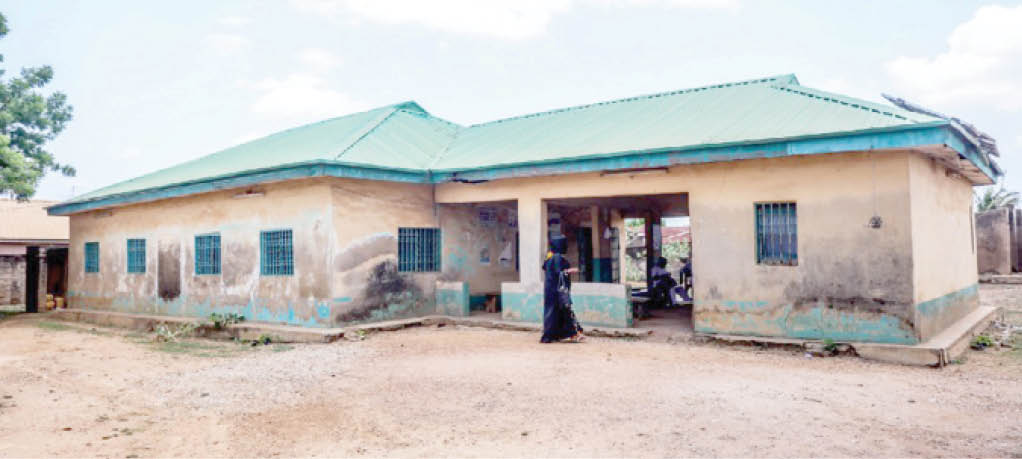Still on Challenges of Primary Healthcare Delivery in Nigeria
Healthcare, according to the Alma-Ata declaration of 1978, is a basic human right of all people regardless of race or socioeconomic status. The declaration went further to identify primary health care as a gateway to achieving optimal healthcare for all. Primary healthcare is so important that it can, if adequately funded, cater to more than […]

Primary Healthcare Delivery in Nigeria
Healthcare, according to the Alma-Ata declaration of 1978, is a basic human right of all people regardless of race or socioeconomic status. The declaration went further to identify primary health care as a gateway to achieving optimal healthcare for all. Primary healthcare is so important that it can, if adequately funded, cater to more than 80% of an individual’s health care needs throughout his or her life. For a heavily populated country like Nigeria where there are income inequalities, there is a need to examine the healthcare system through the lens of health equity, which is accessible, affordable, and offers healthcare for all that need it. This brings to the fore the importance of primary health care which is the bedrock of every health system and mostly the first port of call for most Nigerians when seeking healthcare.
Primary health care is arguably the most critical level of health care delivery. At this level, minor health conditions that can become life threatening are identified early and treated or referred. As acknowledged by the World Health Organisation (WHO), standard, well equipped and staffed Primary Healthcare Centres (PHC)s are able to not only manage illnesses, but also prevent them through health promotions, community and house to house outreaches. They also take substantial burden off the secondary and tertiary health facilities.
- Nigeria loses as Russia-Ukraine war escalates global oil prices
- Police arrest pastor over shooting of teenage girl
Because they are mostly located in rural communities, PHCs are usually the first port of call for rural dwellers when seeking health care. If they can access the services they need at that level, this will prevent them from spending monies they probably don’t have for travel to urban areas for treatment. This makes primary health care an integral aspect of Universal Health Coverage.
Nigeria has many initiatives and programs targeted at improving primary health care delivery. These policies, notably include the Saving One Million Lives for Results (SOMLR), the Primary Health Care Under One Roof (PHCUOR) and most recently, the Basic Health Care Provision Fund (BHCPF) among others. However, despite the huge resources expended on these programs, there are still lack of adequate, well-functioning, well-staffed and well equipped PHCs in Nigeria to provide healthcare services to the people. It is against this backdrop that Nigeria Health Watch initiated the Community Health Watch project with the aim of monitoring and reporting on the true state of primary health care delivery in rural communities around Nigeria. The project has monitored and reported from more than 20 communities in Niger State since it started in August 2021 and held townhall meetings on primary healthcare access and delivery in four communities.
So far, one of the many findings of the Community Health Watch project is the complete and utter dilapidated state PHCs are in Niger State. For example, Bankogi PHC in Wushishi LGA of Niger State has been under the BHCPF since early 2020. However, the PHC is still an eyesore, and is not able to meet the healthcare needs of the people. Bankogi PHC has only two health workers, and as a result is not able to provide 24 hour services to the communities it serves. The building is marred with cracks, with leaking ceilings and broken floors. Worse still, the facility has neither toilet nor source of water. The story is even worse in Ejiko PHC, in Gbako LGA, where women lay on a mat give birth due to non-availability of delivery beds. The PHC also lacks toilet, water and fence. The building is not plastered, and the floors not tiled. More still, the roofing does not have ceiling, and health workers must provide care under scorching heat radiating from aluminium roof.
For Nigeria to overcome her poor health indices, including high maternal and child mortality, deliberate efforts must be made by Federal and State governments to ensure that adequate resources are budgeted and released for improvement of PHCs across the country. The BHCPF, PHCUOR and SOMLR initiatives must be strengthened, and adequately monitored so that resources allocated under them are effectively utilised. Local government councils must take ownership of primary health centres in their wards, as they are closest to these facilities and provision of primary healthcare lies under in the Nigerian context. No PHC in Nigeria should have challenges such as poor infrastructure, inadequate health workers and medications, non-availability of water and toilet facilities.
